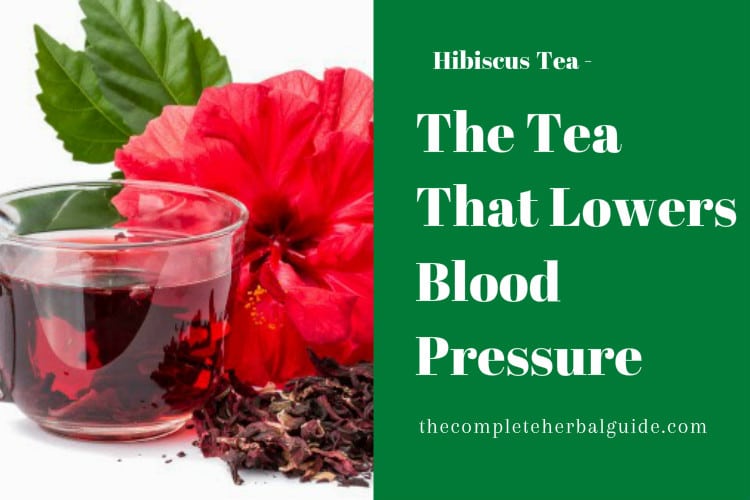
4 Herbs to Increase Low Blood Pressure
High blood pressure or hypertension is one of the leading causes of heart disease in the US. According to the Centers for Disease Control and Prevention, one in every three Americans has high blood pressure. If you have hypertension, check out the recent post 13 herbs to lower blood pressure. You’ll find tons of helpful resources and herbal remedies for managing and reversing high blood pressure. What about low blood pressure though? Should hypotension be a cause of concern, and if so, are there any herbs that can help?
Doctors agree that within reasonable limits, low blood pressure is a good thing. Although any reading less than 90/60 is considered low, and there isn’t a straightforward answer to how low is too low. In people who have chronic low blood pressure, usually there is nothing to worry about unless any of these symptoms appear:
- Light-headedness
- Shallow breathing
- Vomiting and nausea
- Sudden dehydration and feeling unusually thirsty
- Concentration problems
- Blurred vision
- Cold pale skin
- Passing out
- Lethargy
- Depression
Table of Contents
What can cause blood pressure to drop?
Certain factors can cause blood pressure to go down. These include prolonged bed rest, pregnancy, decreases in blood volume (such as in case of injury or internal bleeding), taking certain medications, heart conditions, severe infection, endocrine problems, and nutritional deficiency. While low blood pressure might not be as dangerous as high blood pressure, it can reduce the amount of oxygen and other nutrients to your brain and organs.
Lifestyle changes and herbal medications can help keep blood pressure at an optimal level. It’s always a good idea to speak to your doctor before taking any medicine, and also to self-monitor your blood pressure levels at home. Keeping an eye on your blood pressure is as easy as taking readings at home and keeping a log or chart of your daily levels. If you don’t already have a monitor, check out the 5 Best Manual Blood Pressure Cuffs.
Top 4 herbs for people with low blood pressure
The good thing about herbs is that, unlike the prescription drugs, they won’t raise your blood pressure too much. Consider these four herbs if you experience low blood pressure.
Licorice roots
Used to augment the digestive system and help with problems such as colic, stomach ulcers, and heartburn, licorice root has also been shown to raise blood pressure. Licorice is a plant native to southern Europe and some regions of Asia. While extract from the root or stems is typically consumed, it’s also available in dried varieties, tinctures, topical preparations, and pills. Licorice roots are extremely powerful and thus shouldn’t be consumed more than 30 grams per day, unless your blood pressure is really low. Because of its blood-thinning properties, licorice roots shouldn’t be taken when on similar medication.
Black Tea
Black tea is an herb derived from the Camellia Sinensis plant and is considered useful for low blood pressure and its side effects such as headaches, dizziness, and so on. The spike in blood pressure caused by black tea is usually short-lived, which makes it ideal for situations where a sudden drop in blood pressure is experienced. Research has shown that drinking tea can cause more a more acute rise in blood pressure than consuming caffeine alone. There are different answers to the question of how caffeine actually increases blood pressure, however, the most popular claim is that it does so by stiffening the arteries.
Yohimbe
FDA approved for treatment of impotence for treating erectile dysfunction, Yohimbe herb is considered by the National Center for Complementary and Alternative Medicine as a stimulant to increase heart rate and blood pressure. However, it can have harmful effects on your body if taken for an extended period. It’s recommended to consult your doctor if you want to take this herb. Scientific studies have confirmed that Yohimbe can help increase sympathetic nervous outflow and blood flow, leading to higher blood pressure.
Holy Basil
Holy basil – also known as Tulsi – is an aromatic plant that belongs to the Lamiaceae family and is native to South Asian countries including Pakistan, Bhutan, Bangladesh, India, Maldives, Nepal, and Sri Lanka. Since it’s extremely rich in potassium, magnesium, pantothenic acid, and of course vitamin C, it can be extremely beneficial for low blood pressure. Holy basil can be taken in many ways, extracting its juice, mixing it with honey, and drinking it before breakfast is very common.
In addition to herbs, lifestyle changes can help with low blood pressure like drinking more water, upping your sodium intake, limiting your consumption of alcoholic beverages, as well as checking current medicines for related side effects.






